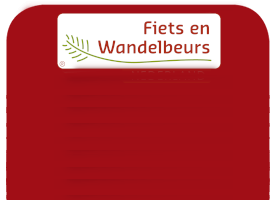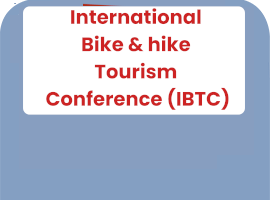IBTC 2020: first edition
- The congress for cycling tourism professionals -
Speakers from the Netherlands, Belgium, Germany, France and the USA, took the opportunity during this first edition to make presentations using examples of progress, problems and solutions in cycling tourism. While the drinks reception afterwards provided the perfect opportunity for networking and exchange of personal experience.
Looking back
Thursdag 27th February 2020
Jaarbeurs Utrecht
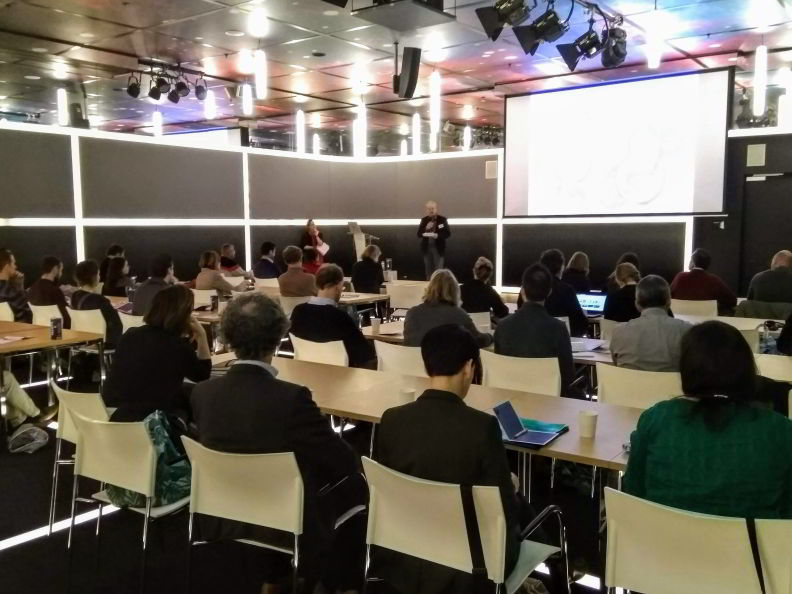
What are cycling tourists looking for? And how do you respond to that with good cycling routes? These questions dominated the first edition of the International Bicycling Tourism Conference, or IBTC for short, in the Jaarbeurs Utrecht. More than 60 professionals from the world of cycling tourism and the media attended the conference.
They were treated to a varied programme with no fewer than nine presentations by cycling tourism specialists from at home and abroad. The conference responded to a clear trend: the sustainability of cycling tourism is becoming ever more important, everywhere in Europe cycling routes are being developed. But do these actually meet the needs and wishes of the recreational holidaying cyclists?
Bumps and holes
Cycling journalist Bert Sitters showed examples, in quick-fire succession, of how things should not be done. Cycling paths that end in the middle of nowhere, with bumps and holes in the road surface, and sharp bends. Sitters, has encountered innumerable examples of these in his long career as a cycling journalist. It seems that not every cycle route developer is able to see things through the eyes of recreational cyclists.
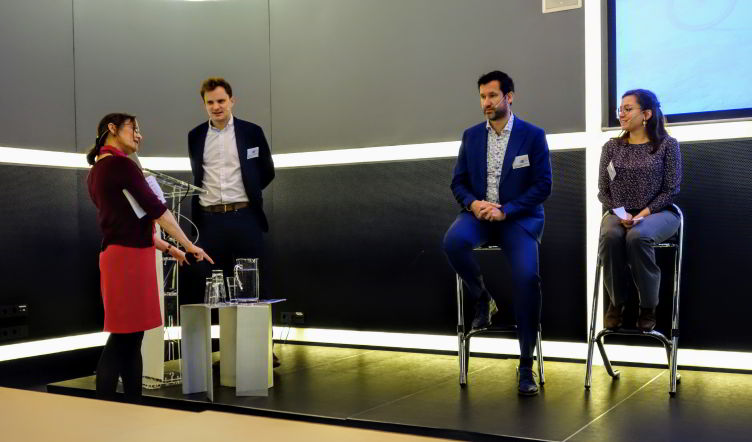
EuroVelo 3
Fortunately there were also reviews of successful examples. Elise Pire of the Wallonia Region zoomed in on one of the long-distance cycling routes in Europe, the EuroVelo 3 (Trondheim-Santiago). The section in Belgium was realised in a short space of time partly because of good co-operation between governments and authorities. There is now a splendid route awaiting cycling tourists between the three-country point at Vaals and the French border, running for a large part on riverside paths alongside the Meuse and Sambre, taking you through cities like Liege, Namur and Charleroi.
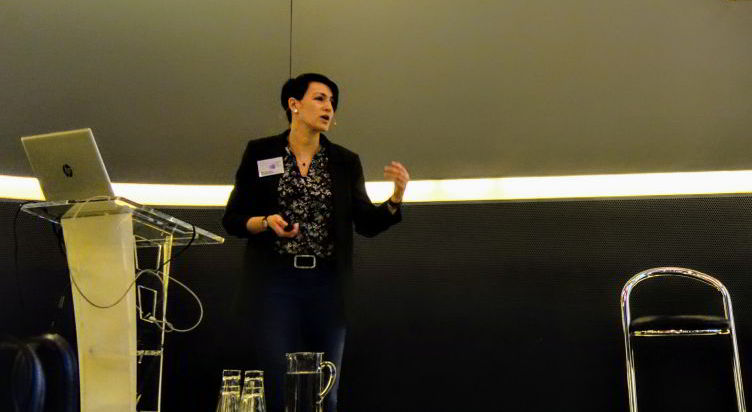
Branding
There was also a great deal of attention for themed routes, which add an extra dimension to the experience and thereby have added value. A pearl amongst theme routes, is the ‘Route der Industriekultur per Rad’ or Bicycle Route through Industrial Heritage in the Ruhr area of Germany. Pia Zimmermann of Ruhr Tourism elucidated the development of the project, which benefited from good branding with its own website, promotional campaign, logo and clear, consistent signage on the route. During his presentation, Fabio Tat of VisitBrabant touched on the advantages of a route with a clear theme, such as the successful Van Gogh cycle route through the Brabant countryside.
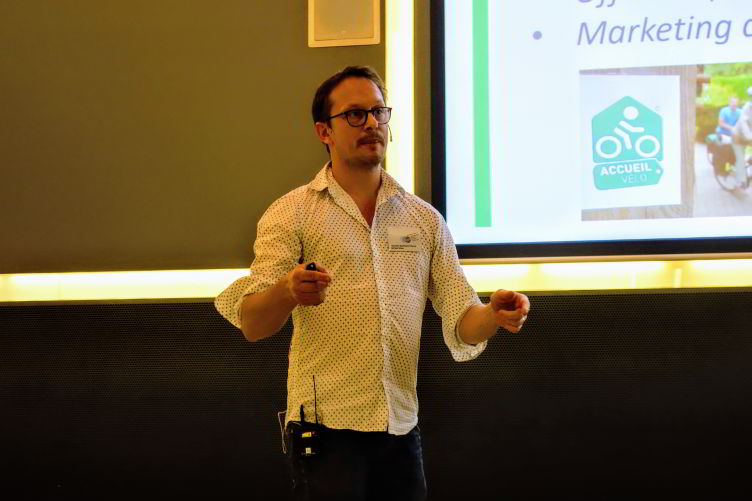
Stamina
Anyone considering starting a cycle route project must be prepared to battle to achieve it, according to the accounts given by Jeroen Stam, a Dutchman who worked at ‘Tourisme Nord’ in France. He spent years trying to convince the French governments and tourism services that cycling tourism brings added value and generates extra income. With a great deal of stamina and persistence he eventually succeeded in realising the first French network with nodes, that link up to the Belgian network.
Bicycles on the train
Roland Huhn of the German cycling association ADFC also gave a striking example of intensive lobbying. For many years the association struggled to get more bicycle storage facilities in the Deutsche Bahn’s trains. Up to and including peaceful ‘guerrilla-actions’. Deutsche Bahn finally started to yield and more bicycle storage space is being introduced on trains. Ed Lancaster of the European Cyclists’ Federation (ECF) brought that struggle into a more European perspective. The ECF has also been lobbying for years for more bicycle storage spaces in trains, a battle that is by no means over.
It was evident from virtually all of the presentations that co-operation between authorities and governments can play a decisive role in the successful development of projects for bicycles and cyclists. In 2021, there will be another edition of the IBTC prior to the Fiets en Wandelbeurs in Utrecht.


